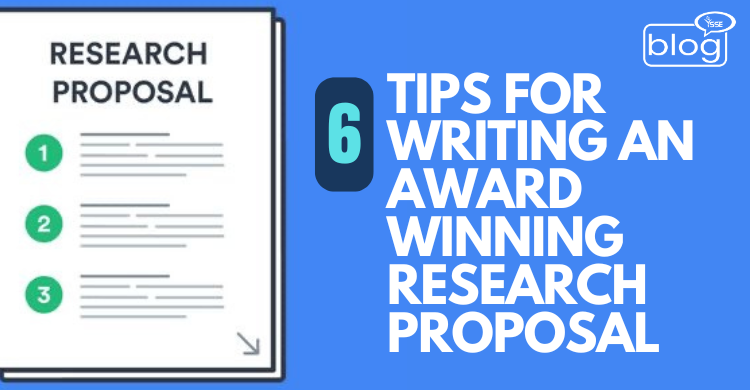Getting grant money for your research has been regarded as one of the critical aspects of an academic career. A strong proposal is, indeed, the key that opens up all such doors. Research proposals are no longer simple descriptions of projects; instead, they are argument papers about the importance, feasibility, and potential impact of the research itself. Writing an award-winning proposal takes exceptionally careful planning, meticulous execution, and a clear understanding of what funding bodies want. Six tips to help you write a research proposal that makes heads turn, though:
- Identify the Funder’s Priorities:
Before you sketch an idea into your proposal, do thorough research about the funding organization: what their declared priorities are, the kinds of research that they typically fund, and what their guidelines and formatting requirements are. Most funding organizations post detailed documents on their websites that include the organization’s mission statements, funding areas, and evaluation criteria. The grant must be tailored as closely to the priorities of the organization as one can get without sounding generic. Do not just submit a boilerplate proposal; indicate to them that you understand their specific interests, as well as how your research fits into their wider goals. Look at what’s previously funded by them to gauge what matters to them. That targeted approach will strengthen the profile of having done some homework in that respect.
- Create a compelling narrative:
Your research proposal is, in fact, a story. It should be engrossing, convincing, and comprehensible even to those outside your field. Introduce the problem at hand with a strong introduction and simple, straight answers on the importance of the research. Why is this research important? What are the specific effects of the research? Avoid, where possible, the use of jargon and define technical terms neatly. Consider your proposal as a narrative that leads the reader from the initial problem to the proposed solution and into the foreseeable impact. A well-structured narrative will keep the reader engaged and thus make your proposal more memorable.
- Display feasibility and methodology:
Similar to an individual, funding institutions need to be assured that your research project is realistic and feasible. Methodology must be articulated, specifying the methods for data collection or reference to existing data alongside the timeline of the different phases of the project. Be specific and detailed, avoiding vague or overambitious plans. In the case of the complex procedure or equipment used for research, show how you will either gain access to those facilities or bring it out in the methodology section. Anyone looking at a well-defined methodology knows that the research has been thought through and that there is a realistic execution plan. Include here any possible challenges and alternative approaches if necessary.
- Address Impact and Significance:
Why should the funding body put their dollars behind your research? Tell in no uncertain terms how your research may impact and make a difference for society, the scientific community, or a particular field. And, of course, don’t just say the impact; instead, provide evidence and examples to support these claims. Quantify as much as possible: “This research has the potential to reduce hospital readmission rates by 15%” is better than “This research is bound to make a significant impact.” Evidence of tangible impacts is very valuable for funding.
- State a clear budget with conciseness:
Just like the narrative part of your research proposal, so is the budget section. It has to be clear, concise, and justified. Itemize and explain each expense well. Be realistic in estimating, and don’t inflate costs. Funding bodies will scrutinize your budget to tell that you have a well-thought-through plan on how you intend to use their funds. Be sure to include any source of matching funding or other sources of support if you have already secured them. A well-prepared budget indicates financial accountability and enhances your credibility.
- Proofread and Take Feedback:
Proofread to check for grammar, spelling, or punctuation errors before submission. Get assistance from colleagues, mentors, or other experts in your research area to review your proposal and get feedback on it. Most often, a new pair of eyes can detect errors that you might have missed. Attention will be given to the comments and suggestions made for a stronger proposal. However, it presents very polished work. Well-written, error-free proposals indicate that you pay attention to detail and professionalism, which can make a big difference in evaluation.
With these six tips, you can significantly increase your chances of writing an award-winning research proposal. The key is clear, concise, and persuasive writing, as well as demonstrating the significance and feasibility of your research. Best of luck!
To read more blogs like this, click here.
Writer
Mahfuza Amir Ela
Intern,
Content Writing Department
YSSE.

